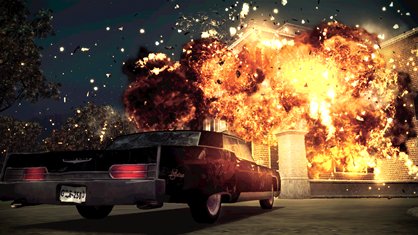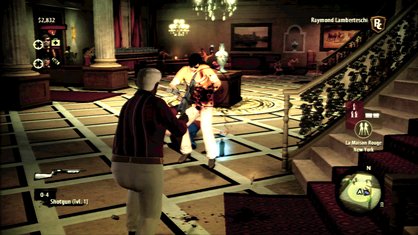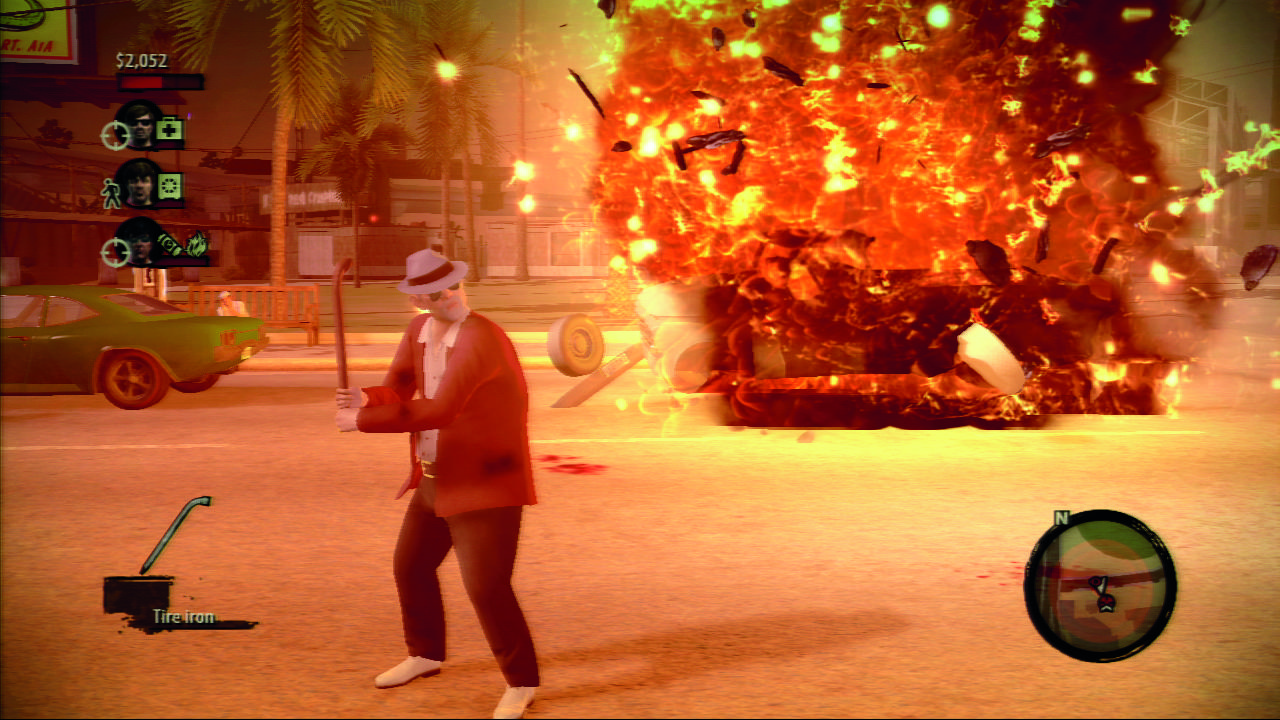Why you can trust GamesRadar+
The time will come, however, when someone’s killed/arrested, and this can see progress grind to a halt. Lose a man and he’s gone for twelve minutes, rendering your outfit next to useless. But smart money management can turn the tables, and the game’s biggest asset is how deep its pockets are.
Every family member can be trained in certain skills. If you know one man’s for keeps you can plug money into his stats to slice his jail and hospital time while beefing up his attacking bonuses and gun licenses. If you really take a liking to somebody you’ll be allowed to promote him to Capo and beyond, unlocking the chance to assign a secondary skill to his repertoire. Though clumsily tucked away behind various menus this strategic depth is crucial to the game – ignore it and you’ll often end up at a racket without the right men for the job and your futile attempts at a takeover will be thwarted by something as feeble as a chain link fence.

These frustrations are incredibly common early on when your small family is continually being sent back and forth to defend turf, even when upgrades haven’t been ignored. It’s almost enough to put you off altogether but the payoff for persevering is sufficient to make it all worthwhile. Once the second city’s placed safely under Corleone protection you’ll have a gang of thugs strong enough to overpower families without your captaincy. Strategically taking out rival monopolies will cripple their combat bonuses, letting you send certain muscle on one task while you’re elsewhere, busy earning more money to boost family stats.
Family wars are fought through business ownership, which means pushing rival gangs out by killing guards and extorting shopkeepers followed by assigning goons to defend your newly acquired fronts. The Don’s View is crucial to achieve this goal. Press Start and you’ll be presented with a 3D map of the city, and you can monitor and amend the status of rackets in previous cities without travelling back yourself.
Here you’ll see which rackets are owned by whom as well as spot people of influence as they wander about their day-to-day business. Guard levels at each store can be upped or lowered, family members can be sent to destroy or overtake facilities and backup can be designated when one of your rackets is under attack. You’ll have to sacrifice members of your own family to defend locations in another city – it’s either that or race to the airport to return in time – which early on leaves your crew castrated and attacking options for new racket takeovers severely lacking.

The influential citizens are a great touch. Help a police chief by quietly murdering a problematic rapist (no, really) and you’ll be handed the ability to call off the fuzz next time you’re in trouble. Aid somebody with a key hovering above their head and things get even better: they’ll bestow you with in-depth knowledge of a rival family member. Armed with this information you can track down another don’s key players and, provided you murder them in the correct way, you’ll damage their defences for easier takeovers.
More info
| Genre | Action |
| Description | A commendable stab at living like a Don, The Godfather II suffers from last gen visuals and a clumsy menu system. |
| Platform | "Xbox 360","PS3","PC" |
| US censor rating | "Mature","Mature","Mature" |
| UK censor rating | "18+","18+","18+" |
| Alternative names | "The Godfather 2" |
| Release date | 1 January 1970 (US), 1 January 1970 (UK) |




